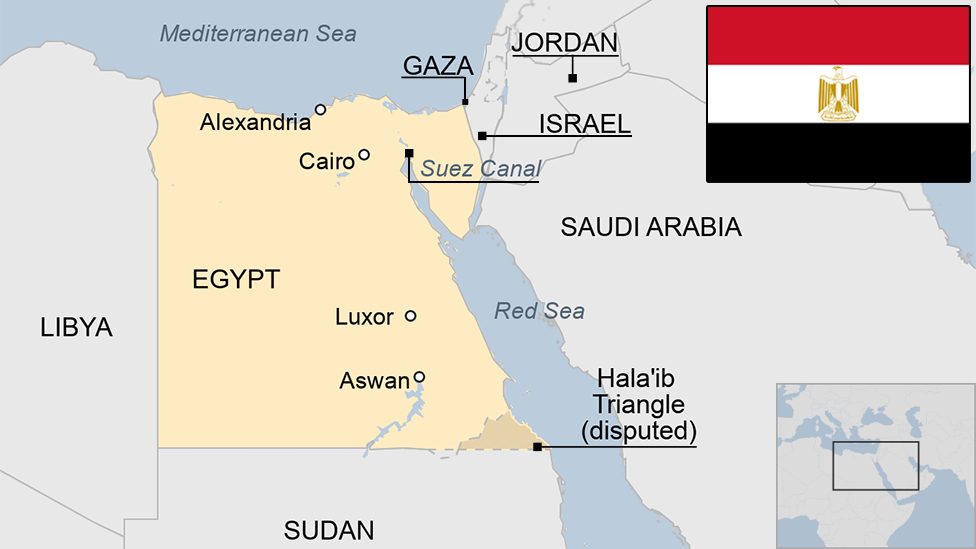Egypt election: Voters to elect president
- Published
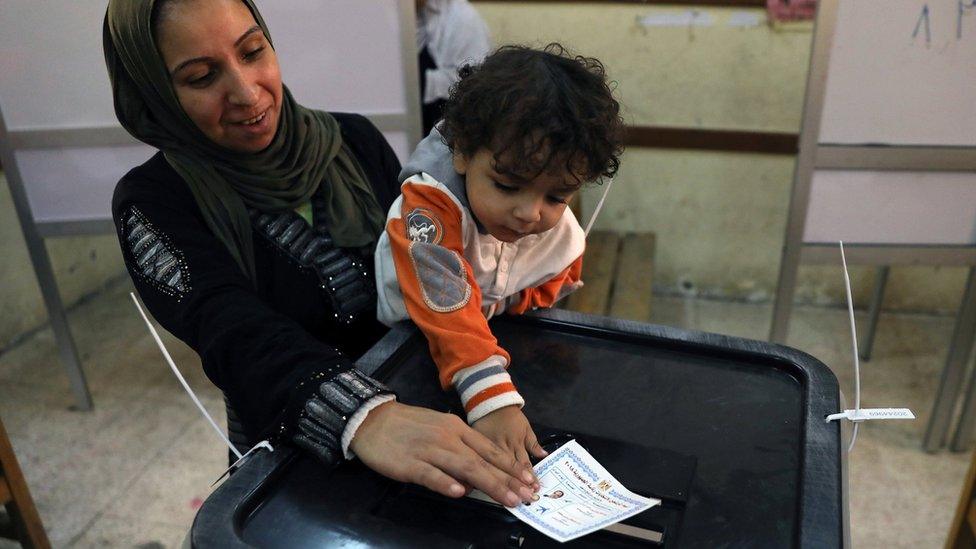
The ballot has been criticised by human rights activists for a lack of competition
Egyptians have begun three days of voting in an election widely expected to deliver a second four-year term for President Abdul Fattah al-Sisi.
His sole challenger, Moussa Mustafa Moussa, is a little-known party leader who had supported him until his last-minute decision to enter the race.
Two other potential candidates dropped out, while a third was arrested.
Mr Sisi led the military's overthrow of President Mohammed Morsi in 2013 after mass protests against his rule.
Since then, he has overseen what human rights group say is an unprecedented crackdown on dissent that has led to the detention of tens of thousands of people.
He has also faced an insurgency by jihadist militants based in the Sinai Peninsula, who have killed hundreds of security personnel and civilians in attacks.
Why are there only two candidates?
Among the potential challengers to Mr Sisi was Gen Sami Anan, a former military chief-of-staff. He is currently in prison after being arrested for announcing his candidacy without seeking the military's permission.
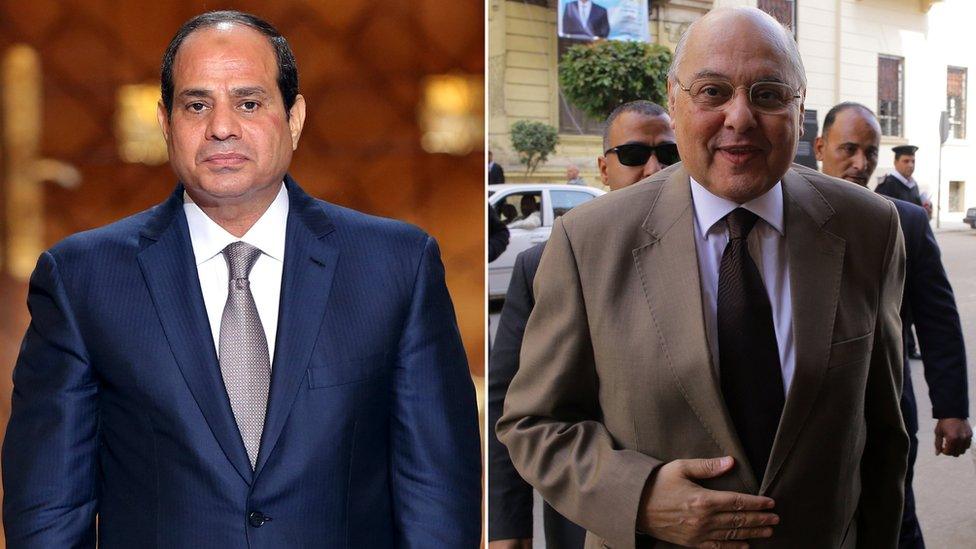
Abdul Fattah al-Sisi (L) and his sole challenger Moussa Mustafa Moussa (R)
Another potential candidate was Ahmed Shafiq, a former prime minister who narrowly lost to Morsi in the 2012 election. He was deported from the United Arab Emirates after declaring his candidacy and dropped out a month later.
The liberal opposition was represented by the human rights lawyer, Khaled Ali. But he also withdrew, saying the conditions did not allow for a fair contest.
Mr Sisi was set to run unopposed, but hours before nominations were due to close Mr Moussa joined the race.
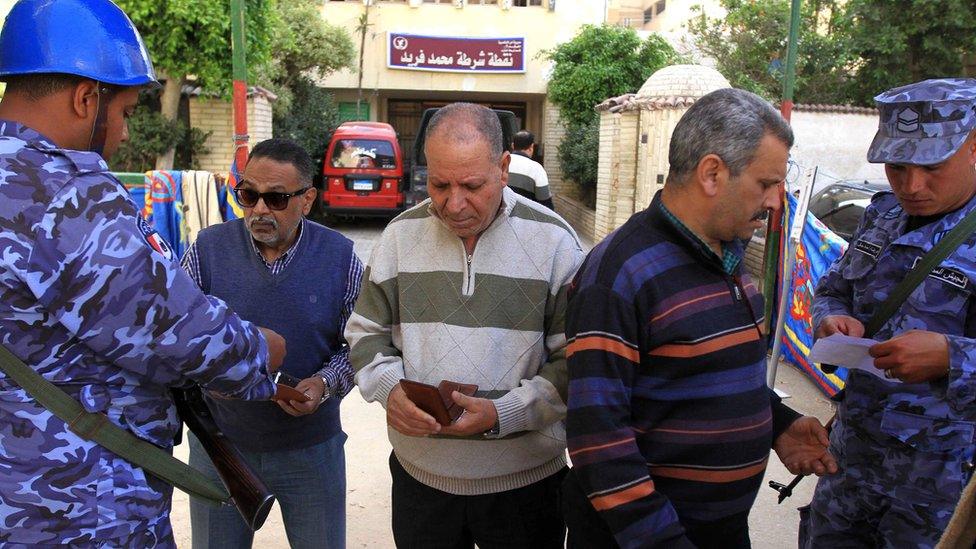
Security personnel have been deployed outside polling stations across the country
Despite having previously endorsed the president for a second term, the al-Ghad party leader insisted that he would mount a full challenge to Mr Sisi. However, opposition activists dismissed Mr Moussa as a "puppet".
Mr Sisi insisted last week that the withdrawals were not his doing, telling an Egyptian TV channel: "I wish we had one, or two, or three, or 10 of the best people and you choose however you want."

Purple dye and patriotism
By Tom Bateman, BBC News, Cairo
Voting at one polling station in a central Cairo neighbourhood appeared orderly with a steady trickle of people coming and going.
One woman waving an Egyptian flag enthusiastically showed us the purple dye on her finger - used to prevent duplicate voting - on what is for many a patriotic day.
Posters plastered the street showing the incumbent president.
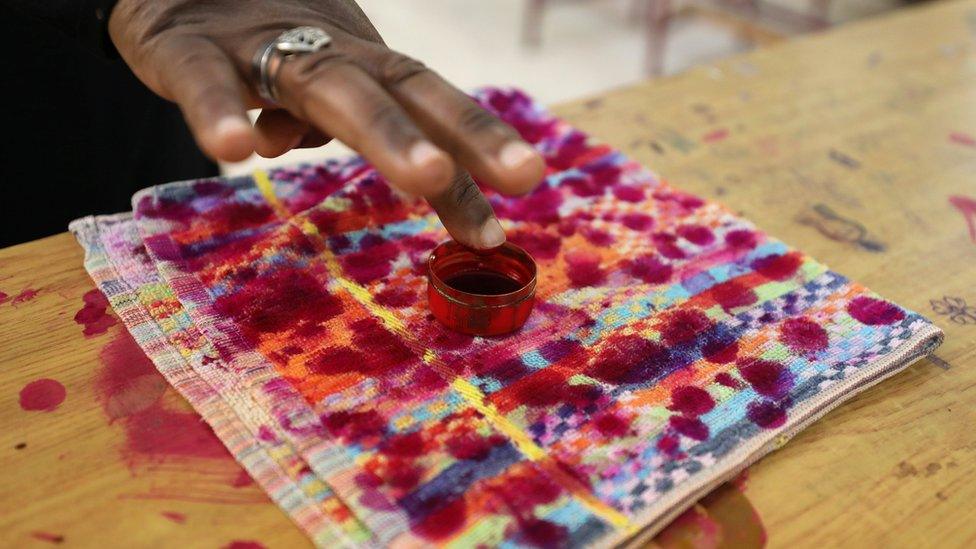
Analysts say they will be focusing on turnout among the 60 million registered voters
Radio and TV ads urged people to turn out to vote as authorities suggested participation was part of the fight against Islamists and unspecified "enemies".
The front page of a state-owned newspaper said: "Your vote is a bullet in the heart of your enemy."
Many analysts are watching the turnout as an important measure of the winner's mandate.

What are the key issues?
As he did four years ago, Mr Sisi has campaigned on a platform of "stability".
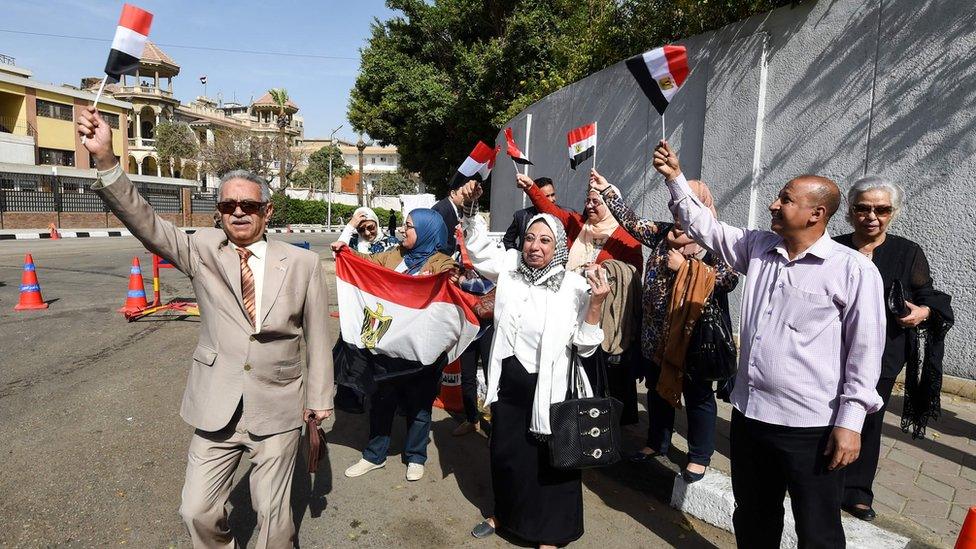
Supporters of Abdul Fattah al-Sisi say he has restored stability to the country
Egypt has been plagued by unrest since a popular uprising forced long-time President Hosni Mubarak to step down during the so-called "Arab Spring" in 2011.
Mr Sisi's supporters argue that Egypt is now far more stable than when, as the military's commander-in-chief, he ousted Mubarak's democratically-elected successor.
But critics say the stability has come at a heavy cost in human rights.
More than 1,000 protesters have been killed in clashes with security forces, at least 60,000 people are reported to have been arrested or charged, hundreds have been handed preliminary death sentences, and hundreds more have gone missing.
Most of them have been supporters of Morsi's now-banned Islamist movement, the Muslim Brotherhood, but liberal and secular activists have also been targeted.
Has there been any unrest?
The election is being held amid tight security, with police and soldiers deployed outside polling stations across the country.
The jihadist group Islamic State (IS) threatened to launch attacks ahead of the vote.
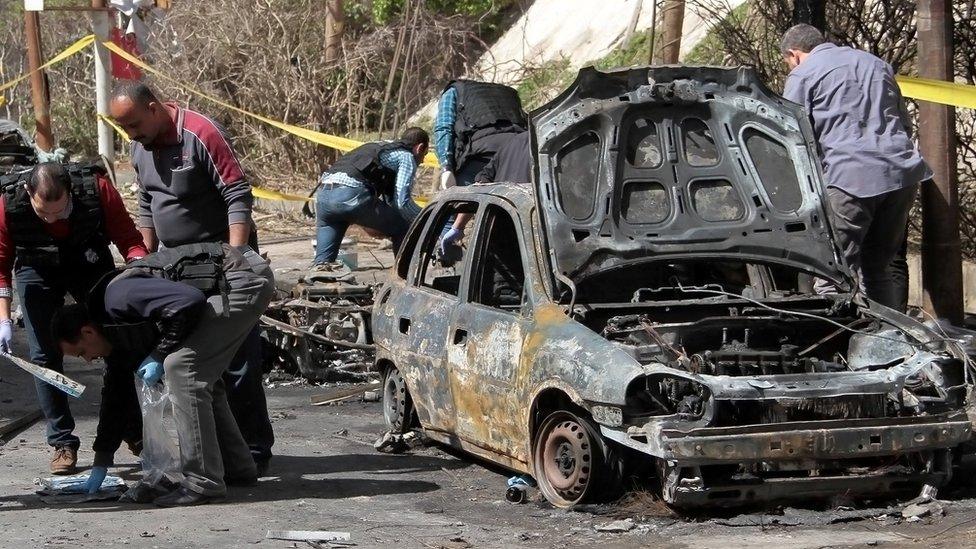
A car bomb killed two policemen in the city of Alexandria on Saturday
On Saturday, two policemen were killed in a car bombing that targeted the security chief in the city of Alexandria. Gen Mostafa al-Nemr escaped unharmed.
The interior ministry said late on Sunday that its forces had killed six militants believed to have been involved in the attack. It identified them as members of the Hasm movement, which it referred to as the armed wing of the Brotherhood.
Mr Sisi's supporters express confidence in the president's ability to enforce security across Egypt and put down the jihadist insurgency.
However, in November militants attacked a mosque in Northern Sinai province, killing more than 300 people. It was the deadliest attack in Egypt's modern history.
- Published2 January 2024
